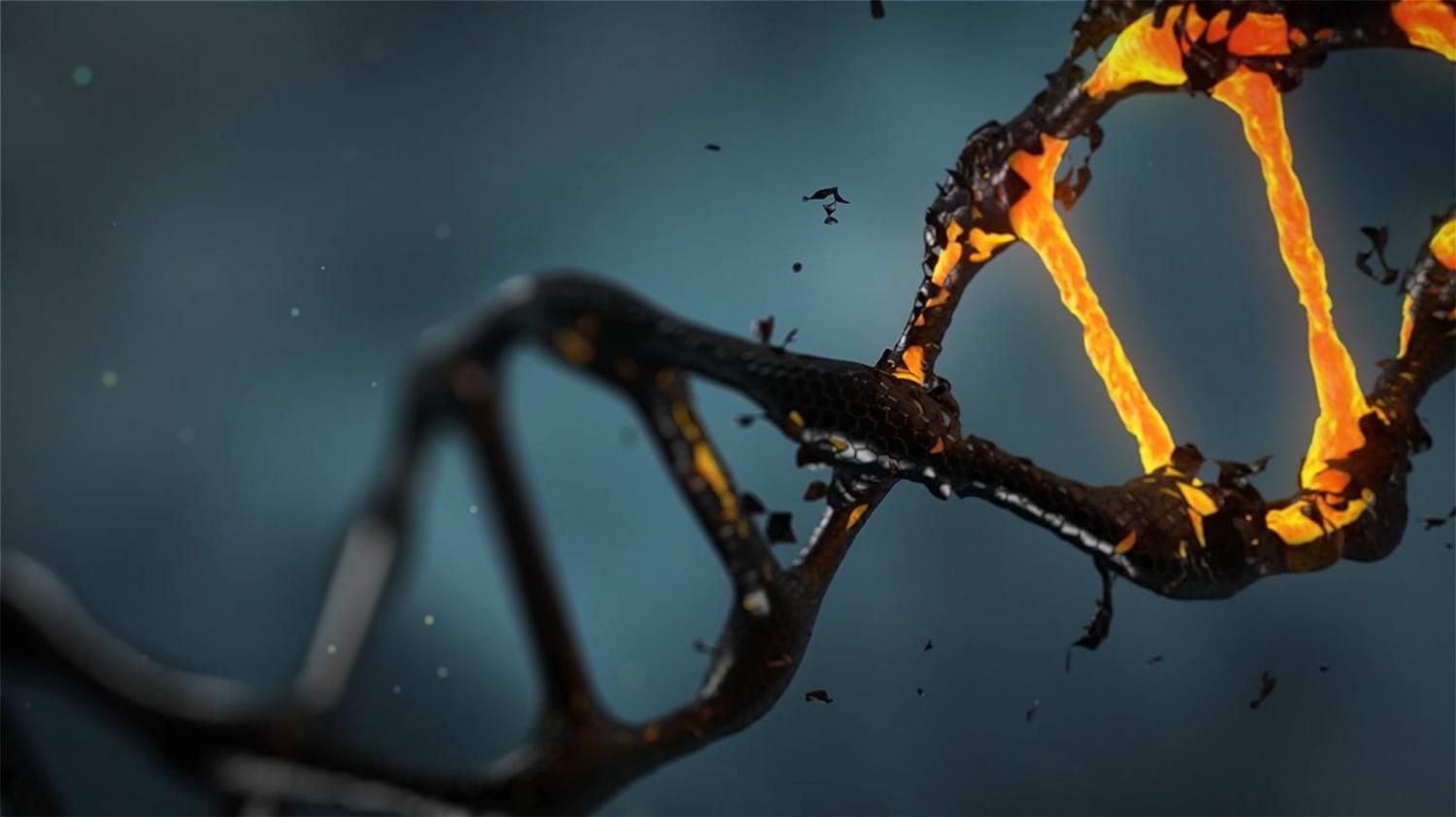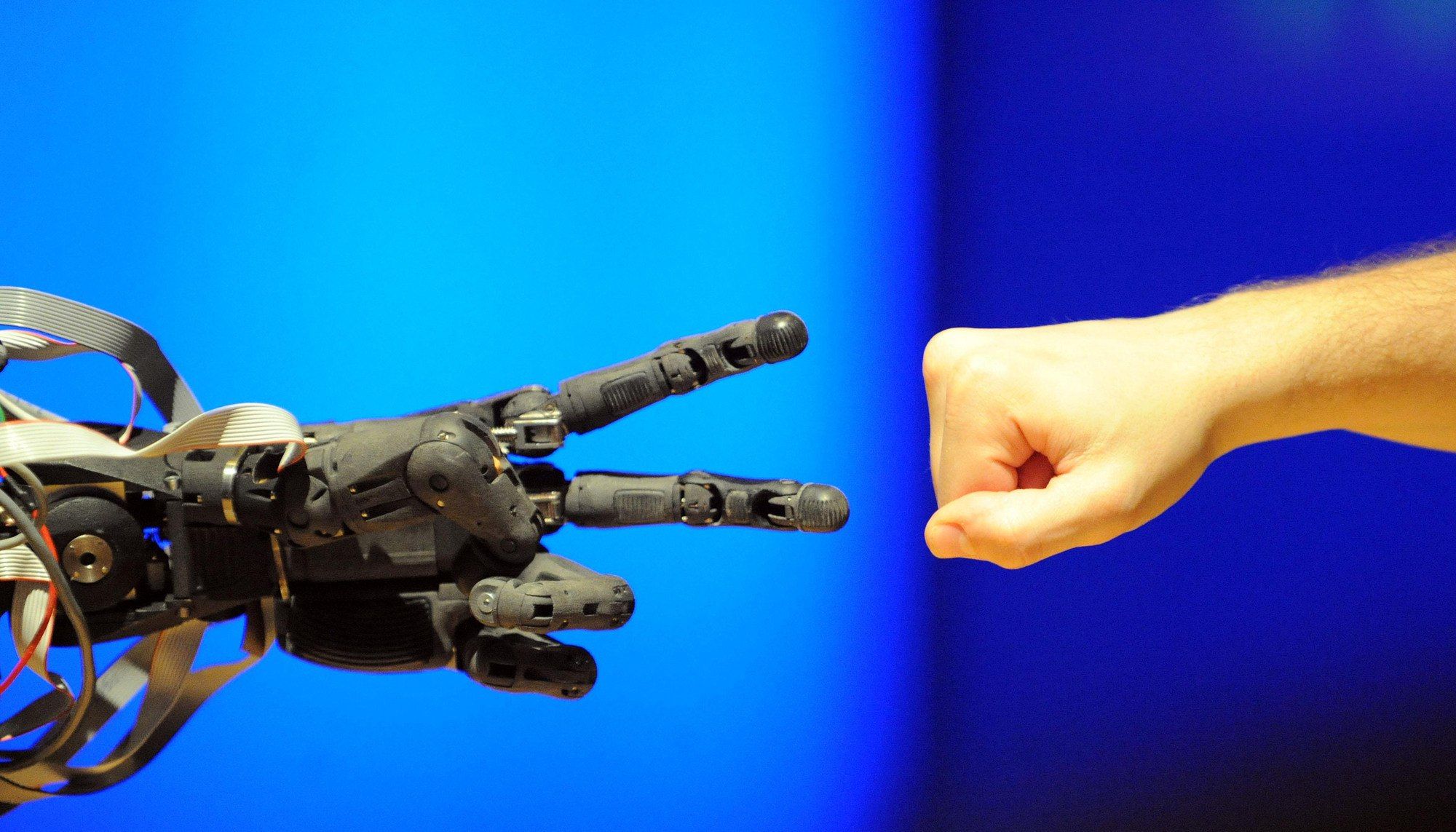AgeX Therapeutics: A Discussion with Dr. Aubrey de Grey, V.P. New Technology Discovery and Dr. Michael West. Co-CEO of BioTime & CEO of AgeX Therapeutics.
Recorded: July 2017
AgeX Therapeutics: A Discussion with Dr. Aubrey de Grey, V.P. New Technology Discovery and Dr. Michael West. Co-CEO of BioTime & CEO of AgeX Therapeutics.
Recorded: July 2017
Full Interview ► https://goo.gl/PvUjjU
Michael B. Fossel, M.D., Ph.D. (born 1950, Greenwich, Connecticut) was a professor of clinical medicine at Michigan State University and is the author of several books on aging, who is best known for his views on telomerase therapy as a possible treatment for cellular senescence. Fossel has appeared on many major news programs to discuss aging and has appeared regularly on National Public Radio (NPR). He is also a respected lecturer, author, and the founder and former editor-in-chief of the Journal of Anti-Aging Medicine (now known as Rejuvenation Research).
Prior to earning his M.D. at Stanford Medical School, Fossel earned a joint B.A. (cum laude) and M.A. in psychology at Wesleyan University and a Ph.D. in neurobiology at Stanford University. He is also a graduate of Phillips Exeter Academy. Prior to graduating from medical school in 1981, he was awarded a National Science Foundation fellowship and taught at Stanford University.
In addition to his position at Michigan State University, Fossel has lectured at the National Institute for Health, the Smithsonian Institution, and at various other universities and institutes in various parts of the world. Fossel served on the board of directors for the American Aging Association and was their executive director.
Fossel has written numerous articles on aging and ethics for the Journal of the American Medical Association and In Vivo, and his first book, entitled Reversing Human Aging was published in 1996. The book garnered favorable reviews from mainstream newspapers as well as Scientific American and was published in six languages. A magisterial academic textbook on by Fossel entitled Cells, Aging, and Human Disease was published in 2004 by Oxford University Press.
Since his days as a teacher at Stanford University, Fossel has studied aging from a medical and scientific perspective with a particular emphasis on premature aging syndromes such as progeria, and since at least 1996 he has been a strong and vocal advocate of [telomerase therapy]] as a potential treatment of age-related diseases, disorders, and syndromes such as progeria, Alzheimer’s disease, atherosclerosis, osteoporosis, cancer, and other conditions. However, he is careful to qualify his advocacy of telomerase therapy as being a potential treatment for these conditions rather than a “cure for old age” and a panacea for age-related medical conditions, albeit a potential treatment that could radically extend the maximum human life span and reverse the aging process in most people. Specifically, Fossel sees the potential of telomerase therapy as being the single most effective point of intervention in a wide variety of age-related medical conditions. His new book, The Telomerase Revolution, (BenBella, 2015) gives a careful explanation of aging, age-related diseases, and the prospects for intervention, including upcoming human trials.

More great news with the book Mark O’Connell’s “To Be a Machine”, whose closing chapter is on The Immortality Bus journey and my presidential run. It was nominated on the longlist of UK’s Baillie Gifford award for nonfiction. This is one of the most prestigious nonfiction prizes in the UK: http://www.foyles.co.uk/news/2017-Baillie-Gifford-Longlist%20Announced #transhumanism
Non-Fiction.

Researchers at the Institute of Molecular Biology (IMB) in Mainz, Germany, have made a breakthrough in understanding the origin of the ageing process. They have identified that genes belonging to a process called autophagy — one of the cells most critical survival processes — promote health and fitness in young worms but drive the process of ageing later in life. This research published in the journal Genes & Development gives some of the first clear evidence for how the ageing process arises as a quirk of evolution. These findings may also have broader implications for the treatment of neurodegenerative disorders such as Alzheimer’s, Parkinson’s, and Huntington’s disease where autophagy is implicated. The researchers show that by promoting longevity through shutting down autophagy in old worms there is a strong improvement in neuronal and subsequent whole body health.
Getting old, it’s something that happens to everyone and nearly every species on this planet, but the question is, should it? In a recent publication in the journal Genes & Development titled “Neuronal inhibition of the autophagy nucleation complex extends lifespan in post-reproductive C. elegans,” the laboratory of Dr Holger Richly at IMB, has found some of the first genetic evidence that may put this question to rest.
As Charles Darwin explained, natural selection results in the fittest individuals for a given environment surviving to breed and pass on their genes to the next generation. The more fruitful a trait is at promoting reproductive success, the stronger the selection for that trait will be. In theory, this should give rise to individuals with traits which prevent ageing as their genes could be passed on nearly continuously. Thus, despite the obvious facts to the contrary, from the point of evolution ageing should never have happened. This evolutionary contradiction has been debated and theorised on since the 1800s. It was only in 1953 with his hypothesis of antagonistic pleiotropy (AP) that George C. Williams gave us a rational explanation for how ageing can arise in a population through evolution. Williams proposed that natural selection enriches genes promoting reproductive success but consequently ignores their negative effects on longevity.

We are delighted to announce that the AgeMeter project has reached its initial funding goal and development of the device can now begin thanks to the support of the community. As a result, we will soon have a great aging biomarker system available to the healthcare professional and home enthusiast alike.
We would like to thank Longecity for running a matching fund and for making a big contribution to the project by purchasing an AgeMeter for their affiliate labs program. This means that their affiliated researchers will have access to an AgeMeter for their aging research in the near future and is another great example of how we as a community are helping support scientists working on the front lines.
So far two Longecity affiliates have already expressed an interest in using the AgeMeter:
Scientists at Tufts University were able to graft eyes to the tails of blind Xenopus, giving the tadpoles the ability to detect colors, focus on objects, and consistently follow patterns.
In a breakthrough for regenerative medicine, researchers have developed working eyes attached to the tails of blind Xenopus tadpoles. The tadpoles were able to process visual information from their environment upon the augmentation, helping scientist understand the process of promoting innervation (a part of the body’s nerve supply) in regenerative medicine.


A new article recently out discussing issues of #transhumanism:
Hello reader, are you trans? Transhuman, that is.
Probably not, but one day you might be – or, failing that, your kids or grandkids. In what is very much a ‘guest’ piece for the American Conservative, Zoltan Istvan – the Libertarian candidate for Governor of California – explains his transhumanist vision:
“…transhumanism is the international movement of using science and technology to radically change the human being and experience. Its primary goal is to deliver and embrace a utopian techno-optimistic world—a world that consists of biohackers, cyborgists, roboticists, life extension advocates, cryonicists, Singularitarians, and other science-devoted people.”
There’s no need to fear a robot taking your job – not if you become one yourself!

A super-short and to-the-point introduction to Rejuvenaction, ageing, and rejuvenation which I wrote on l4t.
You might have noticed I have sometimes mentioned ‘Rejuvenaction’ in passing in other posts on l4t, but never really went too much into detail as to what Rejuvenaction even is. I was hoping to trigger curiosity in the few readers l4t has had thus far (this is what I get for posting once in a blue moon), but I think it is high time to formally introduce l4t’s older brother.
Simply put, Rejuvenaction is an advocacy blog meant to spread awareness about the problem of human ageing and what could be done to bring about the end of this problem within a few decades.
No, it’s neither a joke, nor about snake oil supplements to part a bunch of fools from their money. It’s about hopefully relatively-soon-to-be rejuvenation biotechnologies to bring the biological clock of people back to about 25 years of age, so that regardless of their chronological age, they can be as healthy as they were when they were young adults.

Could an experimental anti-aging cocktail of #rapamycin and #metformin and other drugs extend life? A Chicago physician is treating patients with an untested anti-aging drug regimen. This article details which medications the doctor prescribes and why he prescribes them.
A doctor prescribes anti-aging cocktail of rapamycin, metformin, and other drugs. This article explains the components of the cocktail.